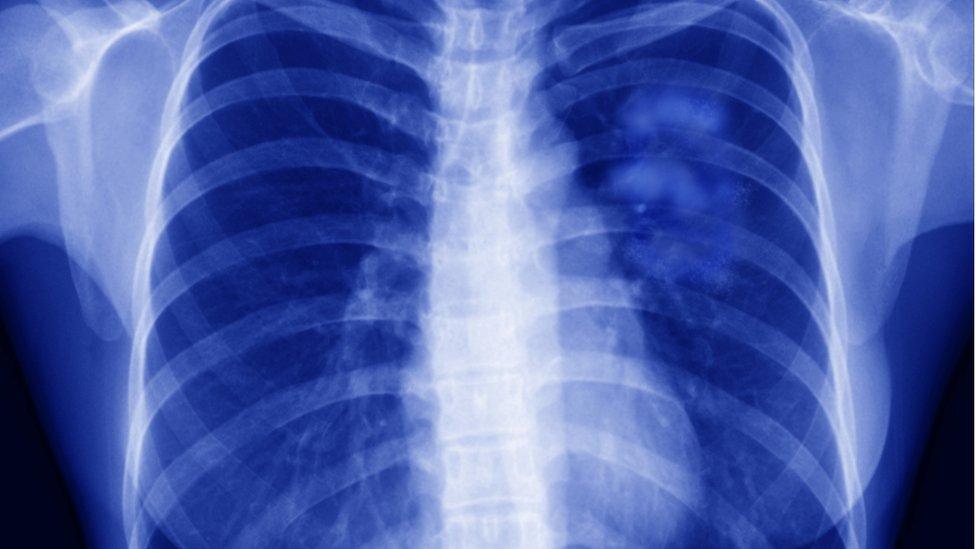Cynon Valley and Neath 'one stop shops' to spot cancer
- Published
- comments
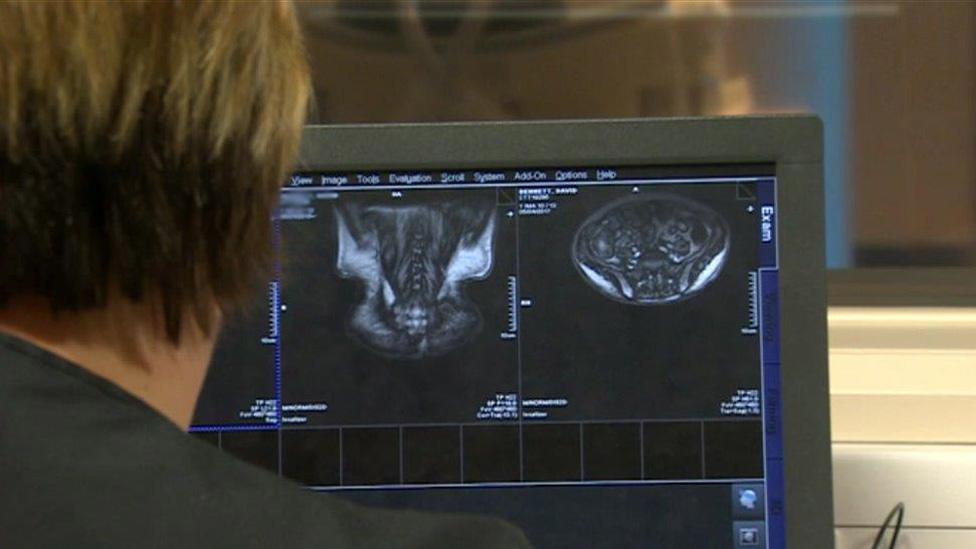
Cancer experts hope a new initiative to be trialled in south Wales will significantly cut the time it takes to diagnose the disease.
Wales and the other UK countries have some of the worst cancer survival rates in the developed world.
A new pilot in the Cynon Valley will focus on patients who GPs suspect may have cancer but do not show obvious or urgent symptoms.
It comes a year after medics visited Denmark to see its diagnostics system.
Officials from Cwm Taf health board were among those who saw how the Danish health service had improved its cancer survival rates.
There are concerns that patients with unclear symptoms wait too long for diagnosis because they do not "fit easily" into any particular treatment route - what is known as a pathway.
It means GPs have to refer them back and forth for a series of tests and scans; each can take several weeks to complete.
As a result it is feared too many patients start treatment at a late stage when their cancer is well advanced or has become incurable.
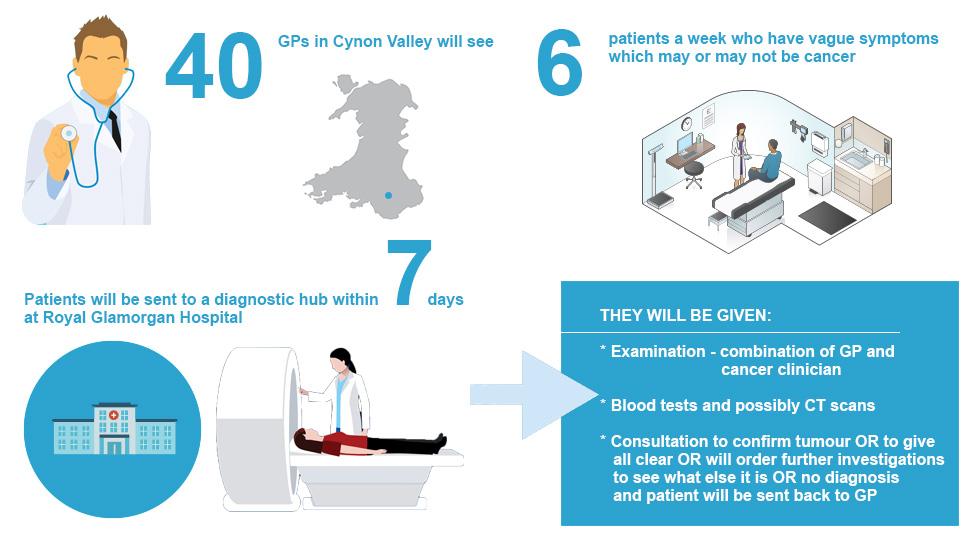
Now 40 GPs in the Cynon Valley who might have a gut instinct that something is wrong will be able to refer those patients directly to a new "one-stop" diagnostic centre at the Royal Glamorgan hospital in Llantrisant within seven days.
It is estimated this might involve about six patients each week - and they will receive an examination and different tests, hopefully all on the same day.
At the moment, only 35% of all cancers diagnosed in the Cwm Taf area are with patients showing urgent "alarm" symptoms.
So doctors want to get to the majority of patients whose cancers are less obvious, sooner.
Dennis Payne has benefited from a faster diagnosis regime for prostate cancer already
A similar clinic will be established at Neath Port Talbot Hospital as part of a second trial run by Abertawe Bro Morgannwg health board.
In the new "one-stop" clinics, a team of experts will "take ownership" of a patients diagnosis.
They will conduct as many tests or scans as necessary - ideally on the same day - to try to get to a definitive answer.
The trials have been developed in the 12 months since experts from Wales returned from fact-finding visit to Aarhus, Denmark's second city.
Denmark has established a number of diagnostic centres as part of efforts to transform cancer care following concerns that the country was lagging behind the best in the world on survival rates.
Its poor performance - at one point it ranked alongside the UK in the international league tables - was considered a "disaster" by Danish politicians and the medical profession.
Dr Gareth Davies, associate director of the Wales Cancer Network, said as well as bringing reassurance for patients it would also speed up the system.
"If the GP sees a patient and is not exactly sure what's going on and has a sixth sense something is wrong, it will allow the GP to refer the patient straight into that clinic."
Aberdare GP Dr Gareth Jordan said the Cwm Taf area had some of the worst cancer mortality rates in Wales and doctors were "extremely keen" on the pilot and making improvements.
If successful over the next six months, it will be rolled out across the rest of the health board area.
Aberdare GP Dr Gareth Jordan hopes it will mean earlier diagnosis
- Published11 April 2016
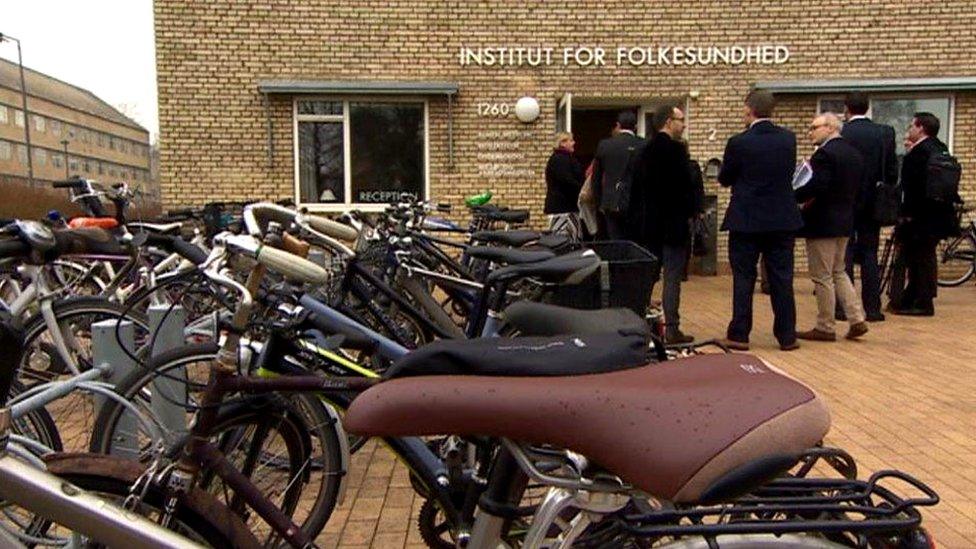
- Published11 April 2016
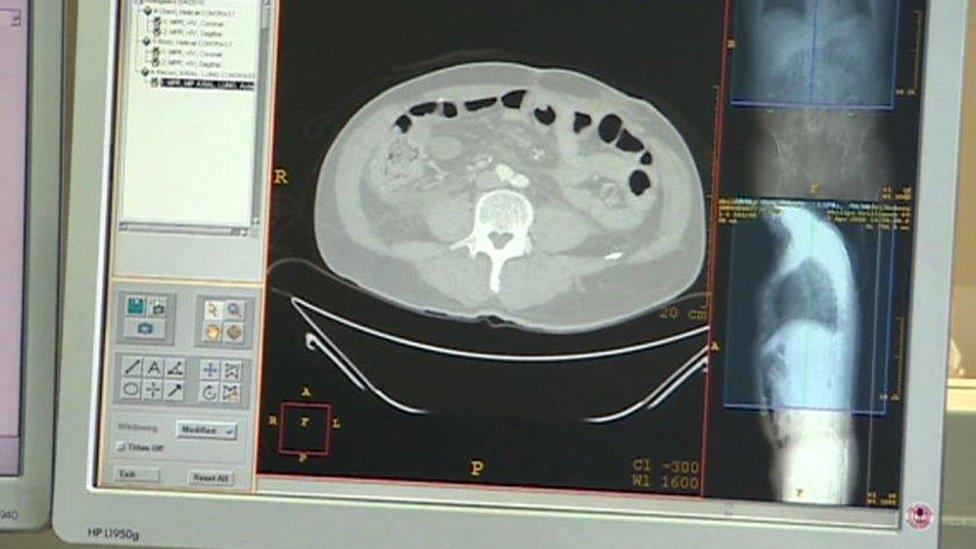
- Published19 October 2016
